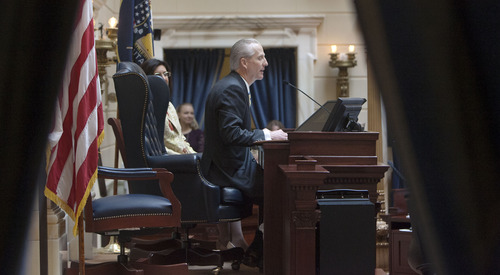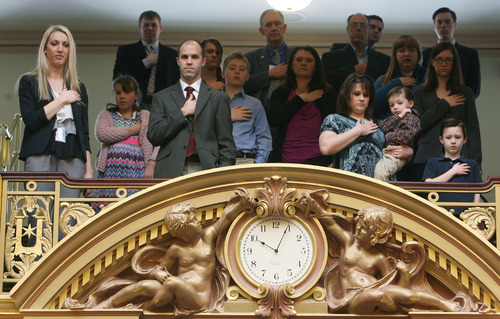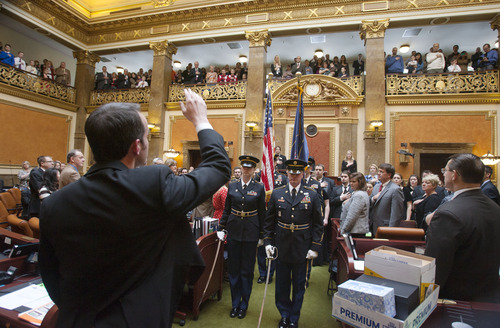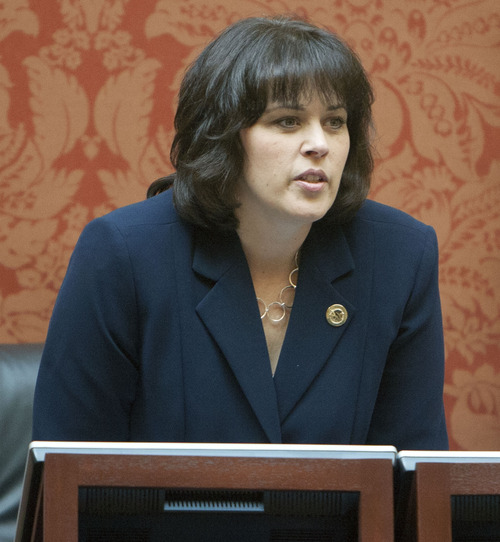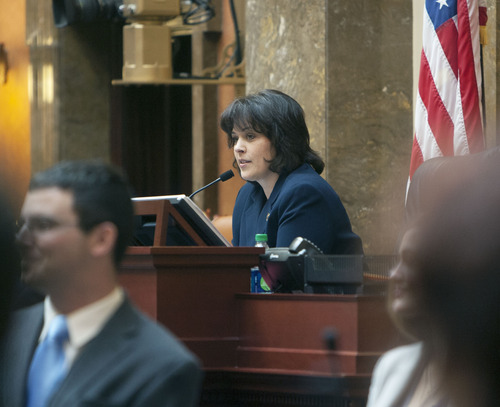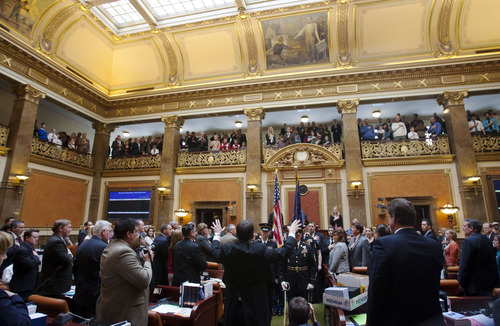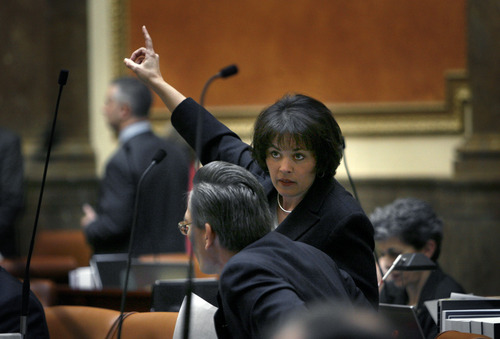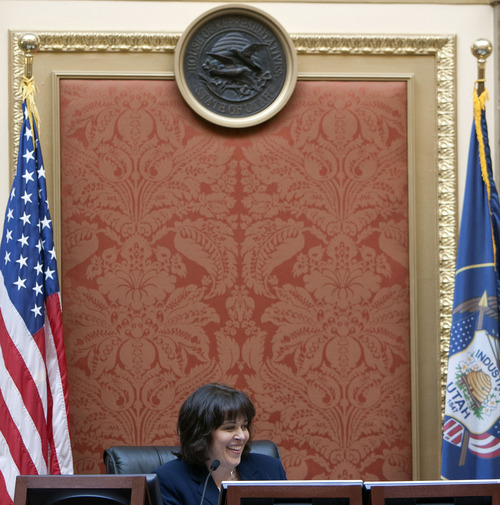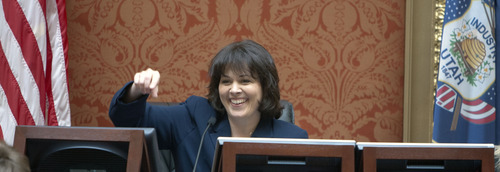This is an archived article that was published on sltrib.com in 2013, and information in the article may be outdated. It is provided only for personal research purposes and may not be reprinted.
House Speaker Becky Lockhart urged lawmakers to think twice before proposing legislation and took a swipe at Gov. Gary Herbert for not vetoing enough bills passed by the Legislature during her opening remarks on the first day of the session Monday.
She said history has shown the Legislature will see about 1,000 bills proposed during the 45-day marathon and about 400 bills will be passed.
"The governor doesn't use the veto pen as often as he should," Lockhart said. "There's got to be more than one or two things he disagrees with, right?"
She said the flood of legislation "means we'll add another 200 pages of [Utah] code to the 200 pages we added last year. That's on top of the thousands and thousands of pages already on the books. Do we really want to keep doing that? Really? Really?"
The Provo Republican, serving her third session as the speaker of the House and her 14th year in the Legislature, also spent a good portion of her nearly 18-minute speech to rip Congress for offering gridlock instead of solutions.
Newly installed Senate President Wayne Niederhauser, R-Sandy, took a similarly critical stance toward Washington.
"There are people today who think we can create money out of thin air," Niederhauser said, adding that Congress attempts as much with deficit spending. "One day the checking account has to be covered. Even a second-grader knows that. It is natural law."
But Niederhauser warned, "Often legislators and other government officials think that they can somehow legislate over natural law. They think they have more power than they really do. It is often done in the name of entitlement or compassion or defense. Eventually, natural law wins out."
Niederhauser added in an opening press conference that it is difficult to develop a budget when the state does not know how much federal money it may receive because of inaction by Congress over how to face the fiscal cliff.
"I'm hopeful that Congress and the president will get together to deal with that crisis before we go over a fiscal waterfall," he said. In the meantime on the state level, he said, "We're going to be very careful and very prudent" with the state budget.
Lockhart's stinging rebuke of the federal government swung widely — from the inability of Congress to balance the federal budget to the Affordable Care Act that mandates states comply with health insurance exchange standards according to national standards.
Utah has an exchange program — called Avenue H — but it doesn't appear to be compliant with federal standards. It would also push the state to take millions of dollars from the federal government to be in compliance with the act.
Lockhart urged the lawmakers to stand firm against it and not follow the lead of spending seen in Congress.
"But why is it we find great fault with Congress while greedily stumbling toward their siren song of cheap and easy money," Lockhart said. "A song that will lead us to a fiscal shipwreck."
And she earned her biggest applause when she suggested continuing to move along a path that makes Utah less reliant on federal money.
That transition has a long road ahead. Last year 29.4 cents of every dollar in the state budget came from federal funds — some $3.6 billion, according to the Governor's Office.
Lockhart also urged the lawmakers to engage in civility — noting that she still expected House Minority Leader Jennifer Seelig, D-Salt Lake City, to fight passionately for her bills. Seelig is leading one of the smallest minorities in recent memory as the House is dominated 61-14 by Republicans and 24-5 in the Senate.
Overall, the Legislature is 82.6 percent GOP, the second-most Republican in the past 80 years. Only the 1967 Legislature (84.5 percent GOP) was more Republican.
Seelig said she appreciated some of Lockhart's comments and was surprised at the challenge to the governor to veto more bills — at one point the speaker made fun of a bill passed last session regulating hairbraiders.
"I think we need to be thorough and thoughtful with every piece of legislation," Seelig said.
But she took issue with Lockhart's rip of taking federal money for the Affordable Care Act. She said it was "our tax dollars that we've paid" and that more should be studied than just the cost of putting the program into effect.
"It's about investing in the front end so we don't have people paying so much on the back end where people have to file for bankruptcy due to medical costs," Seelig said.
Twitter: @davemontero


